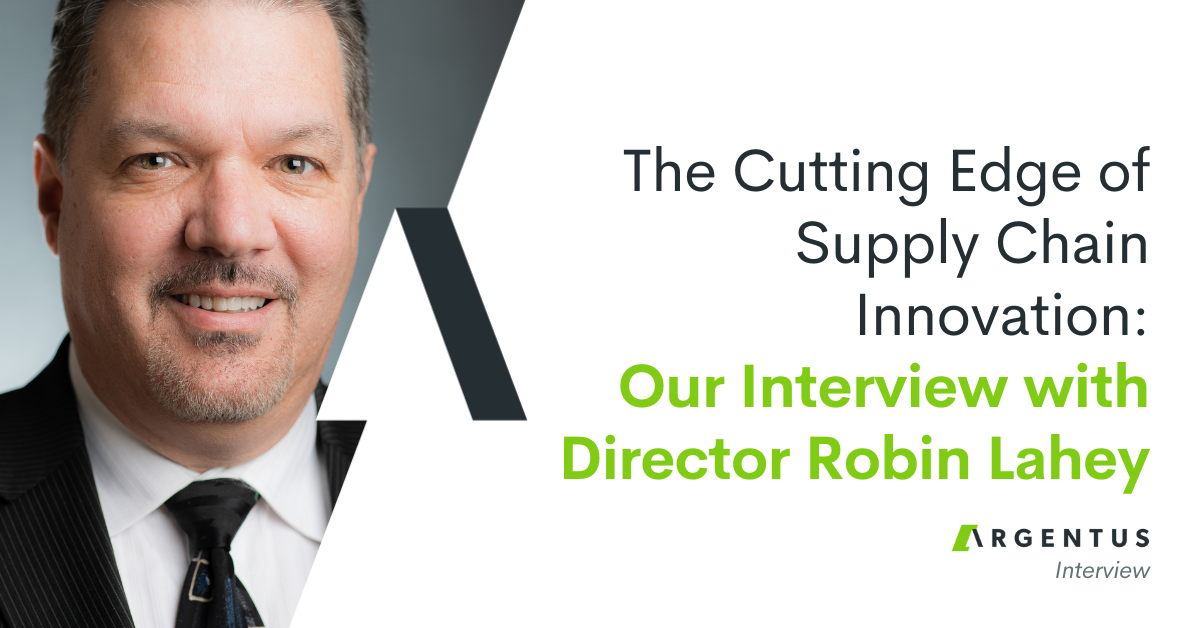“Procurement Professionals do themselves a disservice by talking about only what they save.” – Jack Miles
This interview is a special one. Today we interviewed Jack Miles, a major force in the Procurement field over the past several decades (or as he describes it, “CPO Emeritus”). Mr. Miles has served as Chief Procurement Officer for some of the top organizations in Canada and the United States, including Canadian Imperial Bank of Commerce (CIBC), AIG, and Prentice Hall.
He’s also worked with a number of start-up and early-stage companies to develop sound Procurement methodology and practices. And most close to home for us at Argentus, Mr. Miles was one of the industry leaders who counselled Argentus President and Senior Partner Bronwen Hann, many years ago, that Supply Chain was a burgeoning and vital area in which to specialize her recruitment practice.
We had a wide-ranging discussion about where Procurement has been and where it’s going. Mr. Miles offered some great perspective – from someone who’s been involved in business at the highest level – about how Procurement needs to reorient its mindset if it hopes to gain influence in the C-Suite and drive company revenue, not just savings.
You were one of the business leaders who originally counselled Argentus’ President Bronwen Hann to get into recruiting for Supply Chain and Procurement. Why, at that time, did you recommend it?
“I found that there were very few people in the business world who understood Procurement,” says Miles. “Having gone through a lot of search firms, I realized very few of them understood the business. There was a general belief that anybody could do it. Procurement was seen as a place that people ended up in. But I saw that someone who understood the value proposition of the process would be able to look for the skills and attributes needed for someone in that field to be successful.”
Why Savings Isn’t Necessarily the Best Metric for Procurement Success:
“Savings is the last thing that I’d talk about,” says Miles. “Which separates me from a lot of Procurement professionals. Good Procurement is good process. Procurement brings a good methodology to play. It’s about governance and risk assessment. It’s about fairness in the organization to make sure that you’re dealing with business relationships and reciprocity, so if you do those things right you have good accountability and you save a bit of money.”
“Procurement people do themselves a disservice by talking about only what they save. If you’re a CEO, is the first thing you talk to the board of directors about saving money? No. You’re going to talk about growth, about how you’re going to expand the business. It’s really more about how to help people do what they do quicker, better, with good governance. Get them a good agreement, get them flexibility, and do that at the overall best value. When I hear about some of the things Procurement people talk about, I want them to get out of the mindset that you’re only saving money.”
“It’s a battle. I fought it all the time in my career. Everyone wants to tell you how much money they save, but that isn’t the only thing that matters to business leadership.”
Why Contingent Labour Makes Sense for Procurement:
“I’m of the belief that Procurement should be contingent labour rather than full time,” says Miles. “It makes a lot of sense for a number of reasons. Procurement has a beginning and an end. If you look at many of the things that are procured by a large organization, they’re done periodically. You’ll do a major Procurement on something that’s a specialty every five or six years. Why carry the resources to be able to do that, the knowledge and experience, 365 days a year?”
“Procurement is an ongoing part of the business. For Procurement leadership, taking an under performing organization and turning it into a well-performing organization is a voyage. And for those who do it like me, it has a beginning and an end. I see myself as more of a framer and not the finish carpenter.”
“In addition to that,” says Miles, “if that’s all you do for one company, if you do one major deal periodically, you don’t know what’s going on in the marketplace. In Tech, now, because the dollars are so big, there’s a whole business of advising corporations about how to negotiate the best large license agreements with software companies. That’s all they do.”
How do you see Procurement Evolving in the Future?
“I think there needs to be standards wrapped around measures and metrics,” says Miles. “I’m astonished by the number of Chief Procurement Officers who keep their job by having such a small amount of spend under management. The definition changes based on who you talk to. The standard changes, and the standard should be the total span of the organization. You’re tracking the value proposition.”
“I think the other thing is that there is some elevation in the role of Procurement within organizations. But I don’t think it’s happening fast enough. What that speaks to in my mind is that the leadership within organizations don’t see the value in good and strong Procurement executives. One of the things I like about the business, and a big reason I got into it is that I realized that in a procurement role, there’s no part of the organization that’s off limits to me. I have the ability to play within marketing, facilities, product planning. Wherever it was, procurement had a role in those functions. Yet in most organizations, they’ve only sort of touched the tip of those functions.”
How can Procurement get more involved in delivering value beyond cost savings?
“It’s got to be a combination of things, and you have to put accountability for that on the Procurement people themselves,” says Miles. “They have to be able to go out and evangelize why their functions are important and demonstrate what they can do to add value. And they need to raise the skill levels of the people in organizations. When I go into an organization, I’m always measuring an efficiency ratio. How many people in a Procurement group are actually out there, touching functional areas in a company, doing good work and adding value to people? That ratio had to be extremely high for the function to be successful.”
“Someone on a Board of Directors of a company in Florida had me look at their Procurement function, at that efficiency ratio, and I found that about 80% of the people were doing clerical work that was dumped on them from other areas. People dump this work on them. So they need to get out of that box.”
“I think, in business, it’s important to think about things differently and not be afraid to challenge the status quo. Spend some time thinking about how there’s a better way. You can only end up in the box if someone puts you in the box. If you work diligently, you can move yourself out of that. That involves working to educate people in how strategic Procurement adds value. Working very hard to demonstrate that’s the case.”
“The Procurement process is important,” says Miles, “because you’re dealing with suppliers who know what is needed to get the job done better than you do. If you open yourself up to that education, you can make a huge impact without a whole lot of effort.”
—
A huge thank you to Jack Miles for taking the time to conduct this interview. Stay tuned for an upcoming post where Jack offers his insights about how (and why) early-stage and start-up companies can build their Procurement function the right way from the get-go, and cultivate a solid business culture as a result.
Have you signed up for Argentus’ Market Watch Newsletter? It only takes a moment. You’ll receive low-volume, high-impact market insights from the top specialty Supply Chain recruiters including: Salary Information, Supply Chain industry trends, Market Intelligence, Personal Branding tips and More!
[mc4wp_form]




0 Comments